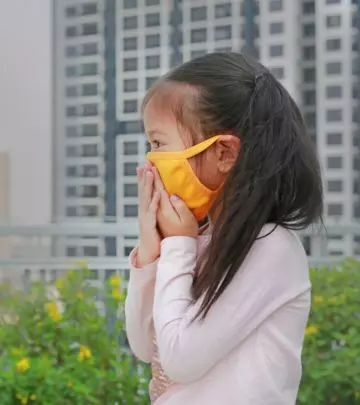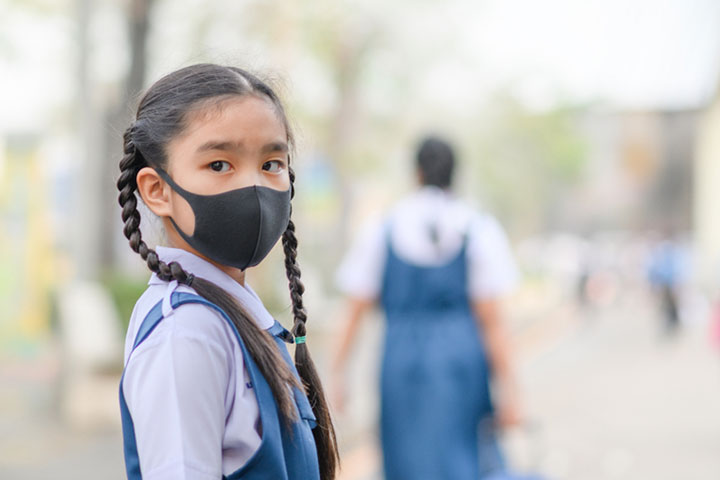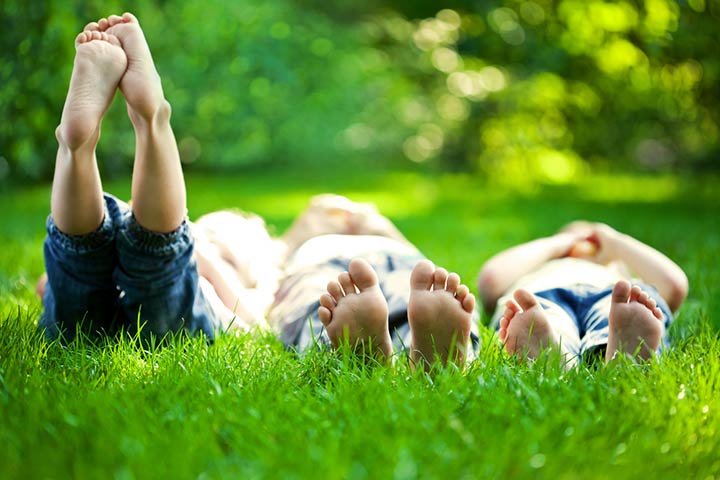
Image: Shutterstock
We have always heard people talk about the dangers of living near highways. While the most common factor supporting this argument has been road accidents, there is this one other issue that has been moving to the forefront. Air pollution! While most of us would not consider air pollution as an obvious issue, it is increasingly becoming one of the most dangerous health hazards, especially for people living near busy roads and highways. But that is not even the saddest part. It is that increased exposure to polluted air has been shown to have detrimental effects on children more than anyone else (1).
As most of us know, breathing in polluted air affects the development of the lungs and may even lead to the development of respiratory conditions such as asthma and bronchitis among children. These illnesses can have a long-lasting effect on a kid’s health. Having such conditions can cause them to miss school and prevent them from being active and participating in extracurricular activities as much as the other kids. However, in addition to respiratory diseases, recent studies have shown that toxins in the air also affect your child’s cognitive development. This can happen in two ways. The pollutants inhaled can pass through the olfactory nerve located at the back of the nose, which is directly connected to the brain. Particles that are small enough could also travel through the lungs and enter the bloodstream to other areas of the body, such as the nervous system. This can have a colossal impact on your child’s cognitive development and overall health. Yet another potentially alarming issue is the recent theory that links the development of autism disorder among kids to exposure to high levels of nitric oxide. While the research is still ongoing on the legitimacy of this theory, it certainly raises some serious red flags when it comes to air pollution and our kids’ cognitive health (2). A kid’s brain undergoes rapid growth during the early stages of their life. This is what helps them develop and hone their cognitive skills even when they grow older. So any kind of disruption to this brain development can have a visceral impact that can be hard to rectify.
Ways To Protect Kids From Pollution
So what can we do to protect our kids from the damaging effects of air pollution? We could start by keeping them away from highly polluted areas that are especially closer to the highways. One way of implementing this could be by building daycares, schools, and playgrounds in areas that are far away from the highways. Places that have plenty of green spaces could be perfect for kids to spend most of their time. As parents, you could also do your part in making sure that your children stay healthy. If you happen to live in an urban metro city, make it a point to frequently take your kids to parks and other places that are free of air pollution. Getting an air purifier could be one of the best things that you can do as it helps in reducing the pollutants in the air to a significant degree. If you are looking for a place, make sure it is not near a busy highway, as the chances are the air could contain high levels of toxins there.
Below we list down a few other tips that you can follow to protect your child from air pollution:
- If you are the parent of a newborn, it’s best not to take your baby out during the morning hours when air pollution is at its worst. Consider taking your baby out during the afternoon, as it is a much safer period.
- Make your home a naturally safe space for your kids by purchasing indoor plants or creating vertical gardens that work as natural air purifiers. Look for purifying plants such as aloe vera, Indian basil, weeping fig, snake plant, areca palm, spider plant, and English ivy.
- Air purifying masks such as N95/99 masks help protect against the polluted air of the outside world. If you live in a heavily polluted city or if your child is exposed to polluted air on their way to school, consider buying the masks for your kids to limit their exposure to pollution.
- Ensure your kid follows a healthy diet with foods rich in vitamin C and E. Include foods such as orange, guava, almonds, avocado, lemon, papaya, spinach, tomatoes, strawberry, and Brussel sprouts.
- If your child suffers from asthma or any other condition that causes breathing difficulty, breathing exercises can help. Spending a few minutes every day practicing breathing exercises may help strengthen your child’s lungs.
- Tracking the air quality every day helps ensure that your child is not exposed to polluted air on days when the air quality is really poor. You could limit their outdoor playtime and ask them to play indoors on days when air pollution is at its worst.
- Exercise plays a crucial role in the immunity of a child. So make sure they stay active by working out or playing to limit their chances of falling sick.
- Lastly, if your child experiences any breathing issues or seems out of breath often, seek medical help.
While air pollution and its effects are something that every one of us needs to be cognizant about, it is best that you don’t panic. Instead, you could look for ways in which you can improve your lifestyle so that your children are as safe and healthy as they can be.














